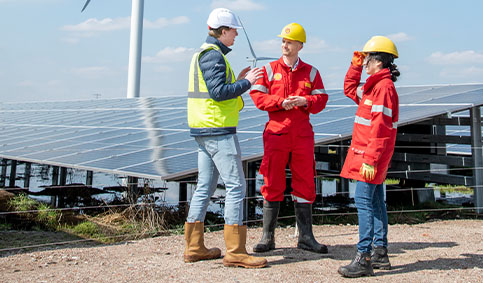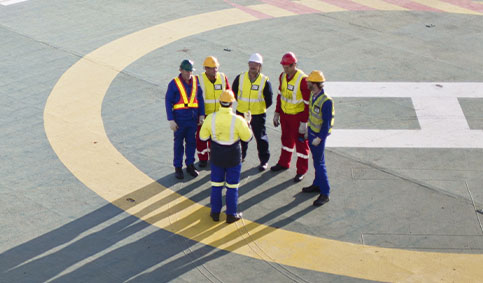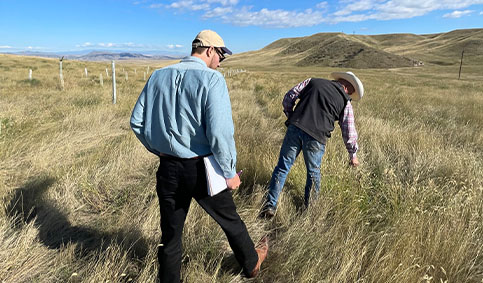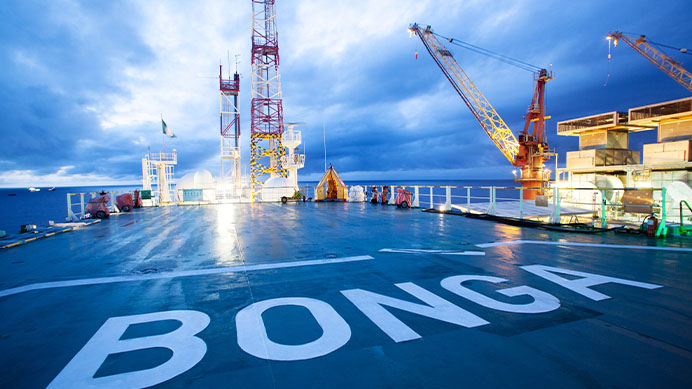Spill response and prevention in Nigeria
In the Niger Delta, over the last 13 years, the total number of operational hydrocarbon spills and the volume of oil spilled from them into the environment have been significantly reduced.
Most oil spills in the Niger Delta continue to be caused by crude oil theft, the sabotage of oil and gas production facilities, and illegal oil refining, including the distribution of illegally refined products.
In 2023, the Shell Petroleum Development Company of Nigeria Limited (SPDC), as operator of the SPDC joint venture (JV, Shell interest 30%) [A], reported nine operational spill incidents of more than 100 kilograms of crude oil, compared with the 10 reported in 2022. The volume of around 0.005 thousand tonnes was less than the 0.01 thousand tonnes recorded in 2022.
[A] Unless otherwise stated, all activities reported for or as relating to SPDC in this section should be understood as SPDC acting as the operator of the SPDC JV. SPDC, as the corporate entity, owns 30% of the JV.
Spills caused by sabotage
In 2023, about 94% of the oil spills of more than 100 kilograms from the SPDC-operated facilities were caused by the illegal activities of third parties. In 2023, the volume of crude oil spills of more than 100 kilograms caused by sabotage was around 1.4 thousand tonnes (139 incidents), compared with around 0.6 thousand tonnes (75 incidents) in 2022.
The increased number of incidents in 2023 can be directly attributed to an increase in third-party illegal connections to pipelines, with 119 incidents reported in 2023 compared with 56 in 2022. SPDC continues to work with the government security agencies to maintain surveillance and address illegal activities of third parties, primarily along the SPDC JV pipeline and its operational areas.
Spills in 2023 |
Clean-up |
Prevention |
|---|---|---|
Number of operational spills: 9 |
Average days before joint investigation commences: 2.74 days in 2023, improved from six days in 2016 |
Illegal theft points removed: 675 in 2023, 2,065 in total since 2016 |
Number of spills caused by third-party interference and other illegal activities: 139, 94% of the total |
Average days to complete the recovery of surface oil: around one week in 2023, improved from 13 days in 2016 |
Steel cages installed to protect wellheads: 374 as of December 31, 2023 |
Volume of spills caused by third-party interference and other illegal activities: less than 1,400 tonnes, 99.7% of the total volume |
Number of sites remediated: 194 in 2023, 970 in total since 2016 |
Breaches of steel cages in 2023: 38 out of 508 attempts |
Prevention
In 2023, SPDC continued on-ground surveillance of its areas of operation, including its pipeline network, to mitigate third-party interference and ensure that spills are detected and responded to as quickly as possible.
There are daily surveillance flights over the most vulnerable segments of the pipeline network to identify any new spills or illegal activity. SPDC has introduced anti-theft protection mechanisms for key infrastructure, including steel cages to protect wellheads.
In 2023, 60 new steel cages were installed around critical infrastructure nodes, bringing the total number of cages installed to 374. This includes 52 cages that have been upgraded with CCTV and 28 with satellite communications. In 2023, out of 508 registered attempts to breach the cages, 38 were successful.
SPDC has an ongoing programme to appraise, maintain and replace key sections of pipelines and flow lines in order to reduce the number of operational spills. In 2023, around 54 kilometres of pipelines and flow lines were replaced.
Response and remediation
Regardless of the cause of a spill, SPDC cleans up and remediates areas affected by spills originating from its facilities. In 2023, the time that SPDC needed to complete the recovery of free-phase oil — oil that forms a separate layer and is not mixed with water or soil — remained at around one week.
In January 2024, Shell announced the sale of SPDC. Completion of the transaction is subject to regulatory approvals and other conditions. To learn more visit: www.shell.com/media/news-and-media-releases/2024/shell-agrees-to-sell-nigerian-onshore-subsidiary-spdc/spdc-sale
For more detailed information on spills in Nigeria in 2023 and our response see www.shell.com.ng/oil-spills. Read more on spill prevention and response in Nigeria at www.shell.com.ng/environment.









